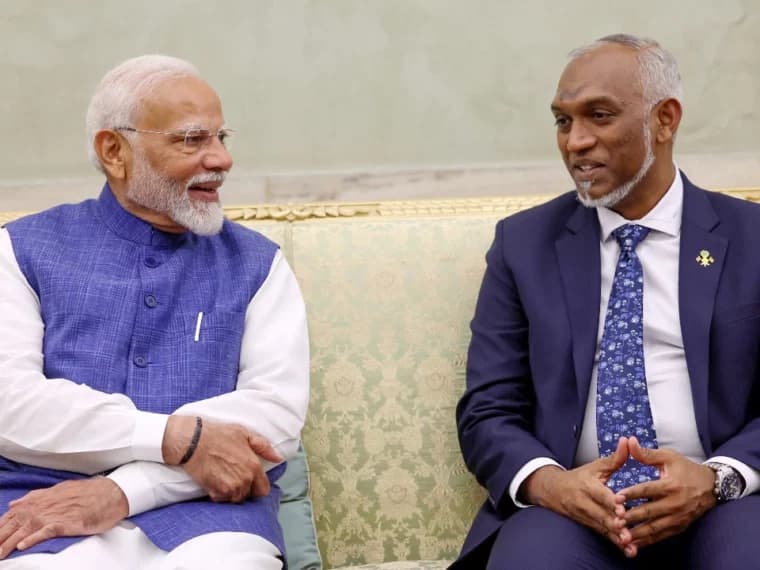
India has introduced RuPay card in Maldives during President Muizzu's visit, aiming to boost financial cooperation and convenience for tourists and residents
The move is part of India's broader strategy to expand its digital payment systems globally, with RuPay now accepted in 185 countries and territories
This initiative follows India's recent UPI expansions to countries like Sri Lanka, Mauritius, and UAE, reflecting its growing influence in the global fintech sector
The Indian government has rolled out RuPay card in Maldives, an initiative to strengthen financial cooperation and enhancing convenience for tourists and residents.
This move follows discussions between Indian Prime Minister Narendra Modi and Maldivian President Mohamed Muizzu, focused on revitalising ties after a challenging period.
PM Modi received President Muizzu at Hyderabad House today (October 7), where both leaders engaged in extensive discussions to reinforce the historic partnership between the two nations.
“Taking forward India-Maldives special ties!” Modi shared on X (formerly Twitter), emphasising the significance of the meeting.
During the visit, Maldives President Muizzu said, “PM Modi and I held extensive discussions, taking stock of our successful development journey together and charting a path for future collaboration. We agreed on a comprehensive vision document, a vision for comprehensive economic and maritime security partnership.”
The introduction of the RuPay card aims to simplify transactions for both tourists and residents in the Maldives, promoting ease of business and boosting economic cooperation. The initiative aligns with India’s broader strategy to enhance its regional economic footprint and support the Maldives’ financial infrastructure.
RuPay, developed by the National Payments Corporation of India (NPCI), is now accepted in 185 countries and territories.
Meanwhile, the Indian government is pitching the Unified Payments Interface (UPI) to the world. In July, PM Modi said that India plans to integrate UPI with Malaysia’s national payments network PayNet. In the same month, NPCI rolled out the ‘UPI One World’ wallet for all foreign tourists in partnership with IDFC First Bank and Transcorp International Limited.
Not to mention, countries in the likes of Sri Lanka, Mauritius, Bhutan, Nepal, the UAE and Canada have already deployed India’s UPI payment model to some extent.
Apart from UPI, Additionally, the NPCI has also launched several new features to fuel the adoption of digital payments such as UPI Lite, which supports low-value transactions; UPI Lite X, which supports offline transactions; and Hello! UPI, which lets users make payments with their voice.































 Ad-lite browsing experience
Ad-lite browsing experience